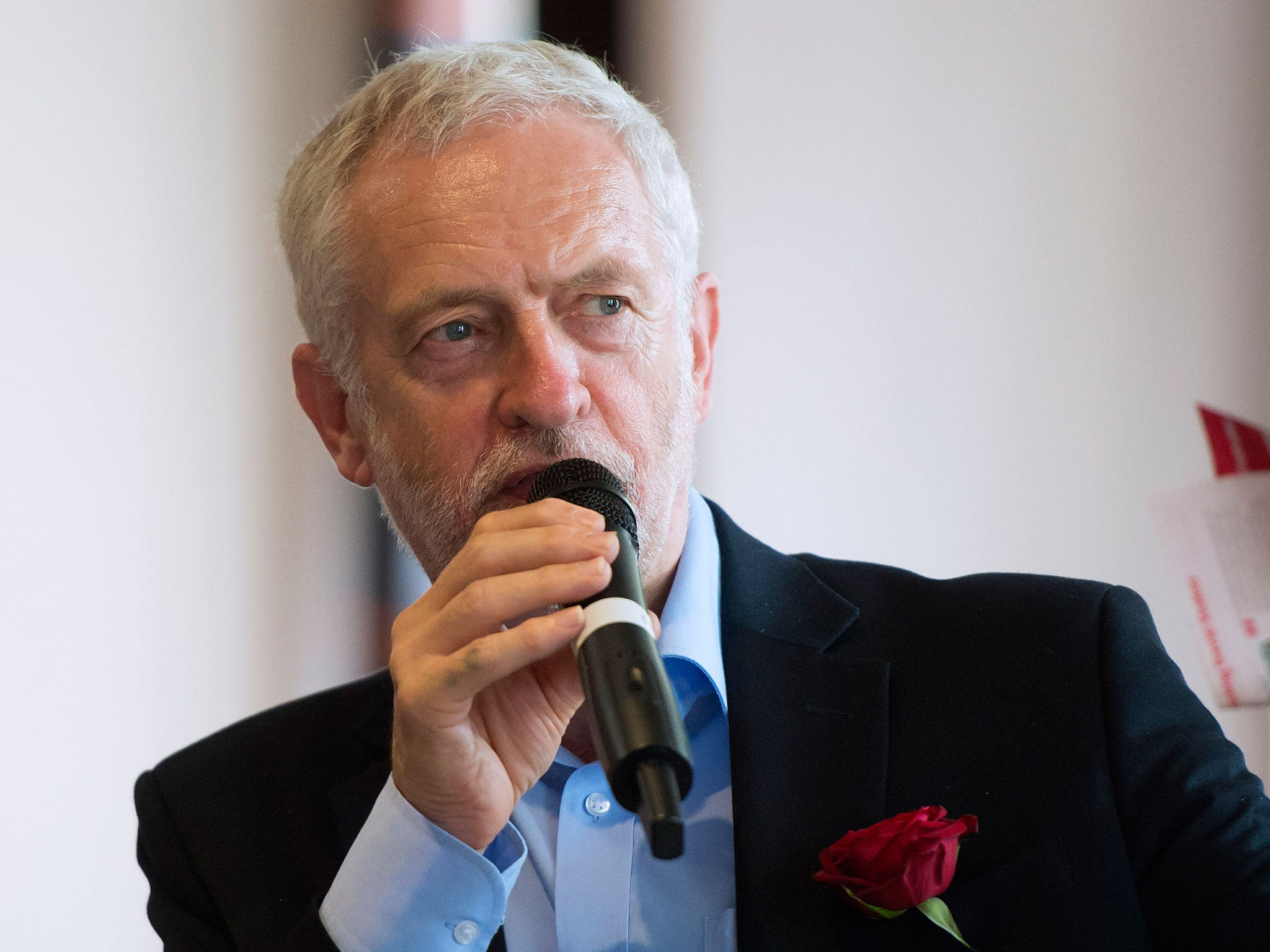It's not true that people voted for Jeremy Corbyn because they 'knew he wouldn't really win'
Although the vast majority of Labour MPs accept that their leader had a good war, some of his remaining critics insist he got lucky because Theresa May fought one of the worst campaigns ever


Your support helps us to tell the story
From reproductive rights to climate change to Big Tech, The Independent is on the ground when the story is developing. Whether it's investigating the financials of Elon Musk's pro-Trump PAC or producing our latest documentary, 'The A Word', which shines a light on the American women fighting for reproductive rights, we know how important it is to parse out the facts from the messaging.
At such a critical moment in US history, we need reporters on the ground. Your donation allows us to keep sending journalists to speak to both sides of the story.
The Independent is trusted by Americans across the entire political spectrum. And unlike many other quality news outlets, we choose not to lock Americans out of our reporting and analysis with paywalls. We believe quality journalism should be available to everyone, paid for by those who can afford it.
Your support makes all the difference.One of the myths about the June election – that people felt it was safe to vote for Jeremy Corbyn because they believed he could not win – has been debunked by the respected British Election Study, based on polling of 30,000 voters.
Academics at Manchester, Oxford and Nottingham Universities concluded that the opposite was true: “The more likely someone thought a Labour victory was, the more likely they were to vote Labour.”
They found the same at last year’s referendum: in other words, people did not cast a “risk-free” vote for Brexit because they believed the Leave camp had no chance of winning.
The finding on Corbyn has big implications. Although the vast majority of Labour MPs accept that their leader had a good war, some of his remaining critics insist he got lucky because Theresa May fought one of the worst campaigns ever, so the real story was that he blew a unique opportunity to win power.
They argue that many people voted Labour in spite of Corbyn, rather than because of him – a finding reflected in focus groups conducted by Deborah Mattinson of the BritainThinks consultancy, who says the most common reason for voting Labour was to “keep the Tories out”.
Tony Blair said he would “hesitate” before saying that all those who voted Labour voted to make him Prime Minister, adding: “I think they thought the likelihood was that the Tories would be the Government, but were determined to neuter the mandate.”
Labour MPs report evidence of people feeling they could “risk” voting Labour because Corbyn had no chance of becoming PM. This is rather disingenuous, given that some of these MPs were happy to tell constituents precisely that if they thought it might save their own skin.
The Corbyn sceptics ignore polling evidence that many people’s doubts about the Labour leader were dispelled when they saw more of him during the campaign, and liked it. He anticipated the public mood on austerity and, as other findings from the British Election Study show, managed to harvest the soft Brexit vote.
The study should also provide food for thought for the Conservatives. They will strain every sinew to delay the next election until 2022; their fears that Corbyn could win one now is a major reason why May is still in her job, since replacing her would fuel demands for the new PM to secure a mandate.
Yet some Tories have already convinced themselves that Corbyn is beatable, not least because the next Tory campaign would not let him off the hook on economic policy in the way May foolishly did this time. Despite the fright he gave them, some ministers are sure voters would never put Corbyn in No 10.
They should not be so complacent. The latest polls suggest Labour would be the largest party in a hung parliament, with 293 seats to the Tories’ 288, according to Electoral Calculus.
Of course, we will never know whether Corbyn would have crossed the finishing line first if he had got his nose in front in this year’s election. The media coverage, founded on polls that were mainly flawed, assumed the Tories would win.
Perhaps Corbyn did benefit from our love for an underdog. We don’t know whether some voters would have recoiled from electing a left-wing PM at the last minute if they believed he was going to win – though the study’s findings suggest the Tories should not rely on that.
There is a risk of complacency in Labour land too. Many Corbynistas believe that “one more heave” will be enough next time. They should not ignore the lessons from 8 June. To win, Labour will need to do much better among working-class people; in the North and Midlands; among pensioners; on the economy and in the “best PM” stakes, where Corbyn still trails May.
Corbyn’s critics also have lessons to learn, and decisions to make. Although some MPs did not believe in his programme, they persuaded themselves they could run under Corbyn Labour’s colours because they were sure he was unelectable. They are not sure now and so they have a dilemma. Corbyn is not going to lurch to the centre; the June manifesto will be the cornerstone of the next one.
As one Labour MP put it: “I told hundreds of waverers on the doorstep there was absolutely no chance of Jeremy becoming PM. What the hell do I say to them next time?”
Join our commenting forum
Join thought-provoking conversations, follow other Independent readers and see their replies
Comments